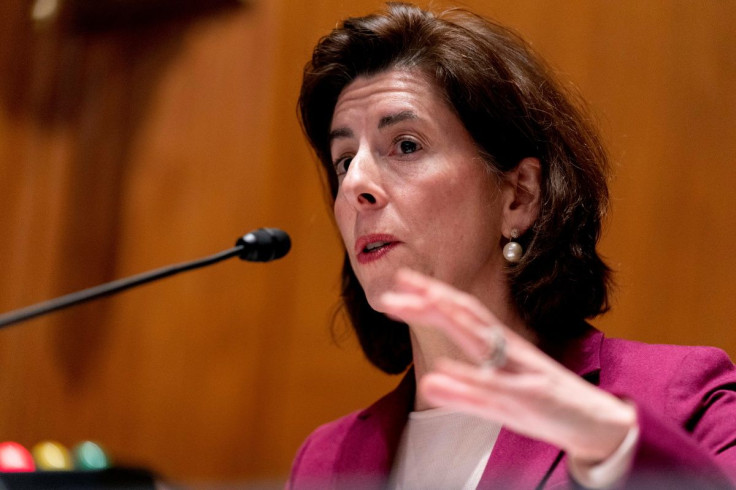New Trade Deal To Lift Tariffs On British Steel, U.S. Motorcycles, Whiskey

The United States and Britain ended a four-year dispute over U.S. steel and aluminum tariffs on Tuesday, pledging to work together to counter China in a deal that also removes retaliatory tariffs from U.S. motorcycles, whiskey and other products.
In a joint statement, U.S. Commerce Secretary Gina Raimondo and U.S. Trade Representative Katherine Tai said the deal would protect steel and aluminum companies - and their workers - in both countries, allowing the allies to focus on what they say are "China's unfair trade practices."
The would also help ease inflation in the United States, where consumer prices have hit their highest level in 40 years, Raimondo said.
Under the deal, Britain will receive a duty-free import quota of over 500,000 tonnes of steel "melted and poured" in the country annually. It also sets smelt and cast requirements on aluminum.
The agreement requires any U.K. steel company owned by a Chinese entity to audit their financial records to assess influence from the People's Republic of China government, and then share them with the United States, the statement said. The requirement will initially apply to British Steel, acquired by China's Jingye Group, in 2020.
The announcement of the deal was warmly welcomed by many business executives and labor leaders in both countries.
The pact, which comes after Raimondo met with Britain's trade minister, Anne-Marie Trevelyan, also will end Britain's retaliatory tariffs on iconic American goods, including Harley-Davidson motorcycles, bourbon whiskey, Levi Strauss blue jeans, and cigarettes.
The United States has reached similar deals with the European Union and Japan.
Britain is a relatively small supplier of steel to the United States. Its 500,000-tonne quota for finished steel exceeds average UK shipments to the United States in 2018 and 2019 and is considerably smaller than the EU quota of about 4 million tons and Japan's quota of 1.25 million tons.
Trevelyan met with Raimondo in Washington after two days of meetings with Tai and other U.S. trade officials about expanding U.S.-UK trade ties and ensuring they protected labor rights, the environment and addressed a changing digital economy.
The Trump administration imposed the U.S. metals tariffs in March 2018 under the Section 232 national security law to protect U.S. producers from subsidized imports.
The U.S. Steelworkers Union said the deal marked "an important step in addressing systemic problems like illegal dumping and global overcapacity that threaten the vitality and future of our steel and aluminum industries."
It said the arrangement with Britain left the overall structure of the 232 relief measures in place while imposing tariff rate quotas.
Steelworkers have expressed concerns that easing the tariffs for allied countries will allow surges of steel into the United States that could hurt industry profitability. But futures prices for Midwest hot-rolled steel remain elevated at $1,138 per ton, compared to $1,265 a year ago, more than $1,900 last August and $825 when tariffs were first imposed in 2018.
© Copyright Thomson Reuters 2024. All rights reserved.




















